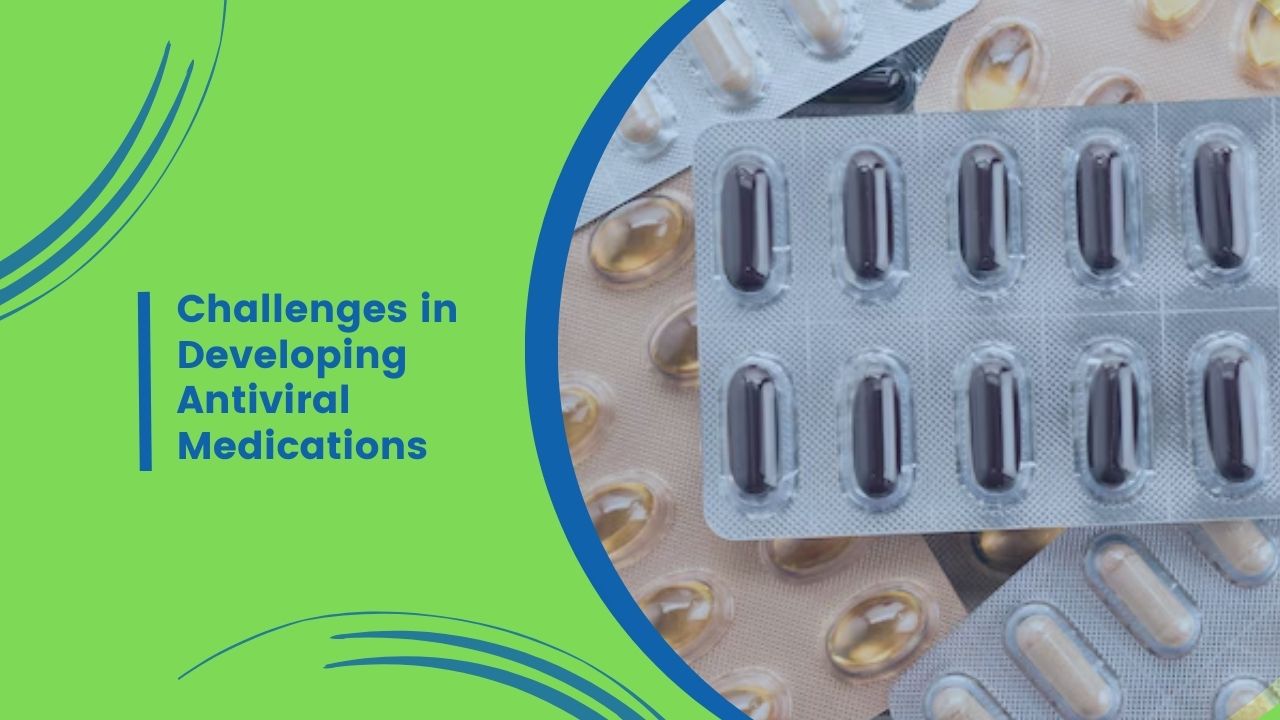The development of antiviral medications is a complex and multifaceted process that poses significant challenges to pharmaceutical manufacturers globally, including those in India. The process encompasses discovery, development, clinical testing, and regulatory approval, each fraught with unique obstacles. This article delves into the critical challenges faced by pharma manufacturing companies in India, and by extension, medicine manufacturing companies worldwide.
1. Scientific and Technical Challenges
- Identification of Viral Targets:
Identifying effective targets for antiviral drugs is challenging due to the complexity of viruses. Unlike bacteria, viruses use the host’s cellular machinery to replicate, making it difficult to find targets that do not harm the host cells.
- Resistance Development:
Viruses can mutate rapidly, leading to the development of resistance against antiviral drugs. This necessitates the continuous development of new medications, complicating the drug development pipeline.
- Drug Delivery:
Effective delivery mechanisms are crucial for antiviral drugs to reach the site of infection. The development of formulations that can effectively deliver the drug to the target site without degradation is a significant challenge.
2. Regulatory Challenges
- Stringent Regulations:
Pharmaceutical manufacturer in India must navigate stringent regulatory requirements both domestically and internationally. Meeting these regulations, which ensure the safety and efficacy of medications, can be time-consuming and costly.
- Approval Process:
The approval process for new antiviral drugs involves extensive clinical trials and documentation, which can take several years. This lengthy process delays the time it takes for new medications to reach the market.
3. Economic and Financial Challenges
- High R&D Costs:
The research and development (R&D) of antiviral drugs require substantial financial investment. The high cost of R&D can be a significant barrier, especially for smaller pharma manufacturing companies in India.
- Market Competition:
The pharmaceutical industry is highly competitive. Medicine manufacturing companies in India face competition not only from domestic players but also from international firms. This competition can impact pricing and profitability.
- Return on Investment (ROI):
Given the high costs and long timelines associated with drug development, achieving a satisfactory ROI can be challenging. Companies must balance the need for innovation with the imperative of financial sustainability.
4. Infrastructure and Technological Challenges
- Advanced Technology:
Developing antiviral medications requires advanced technology and infrastructure, including high-throughput screening facilities, biotechnological tools, and sophisticated laboratory setups. Not all companies have access to such advanced technologies.
- Skilled Workforce:
There is a need for a highly skilled workforce, including researchers, scientists, and technicians, to drive the innovation and development process. Training and retaining such talent is crucial and can be a significant challenge.
5. Logistical and Supply Chain Challenges
- Raw Material Sourcing:
Sourcing high-quality raw materials and active pharmaceutical ingredients (APIs) is vital for the manufacturing process. Medicine manufacturing companies in India must establish reliable supply chains, which can be disrupted by geopolitical and economic factors.
- Manufacturing Scalability:
Scaling up the production of antiviral medications from laboratory to industrial scale without compromising on quality and efficacy is a complex process. This requires robust manufacturing processes and quality control systems.
6. Public Health and Ethical Challenges
- Access and Affordability:
Ensuring that antiviral medications are accessible and affordable to the population is a significant challenge. Pharmaceutical manufacturers in India must work towards pricing strategies that balance profitability with public health needs.
- Ethical Considerations:
The development and distribution of antiviral drugs involve ethical considerations, including the prioritization of patient groups and equitable access to medications during outbreaks.
Conclusion
The challenges of developing antiviral medications are numerous and complex, encompassing scientific, regulatory, economic, infrastructural, logistical, and ethical dimensions. Pharmaceutical manufacturers in India and globally must navigate these obstacles through innovation, strategic planning, and collaboration. By addressing these challenges, pharma manufacturing companies in India can contribute significantly to global health by developing effective antiviral therapies.
Indian pharmaceutical companies, with their growing capabilities and global reach, are well-positioned to overcome these challenges. However, continuous investment in R&D, infrastructure, and talent development is essential to ensure the successful development and delivery of antiviral medications.

